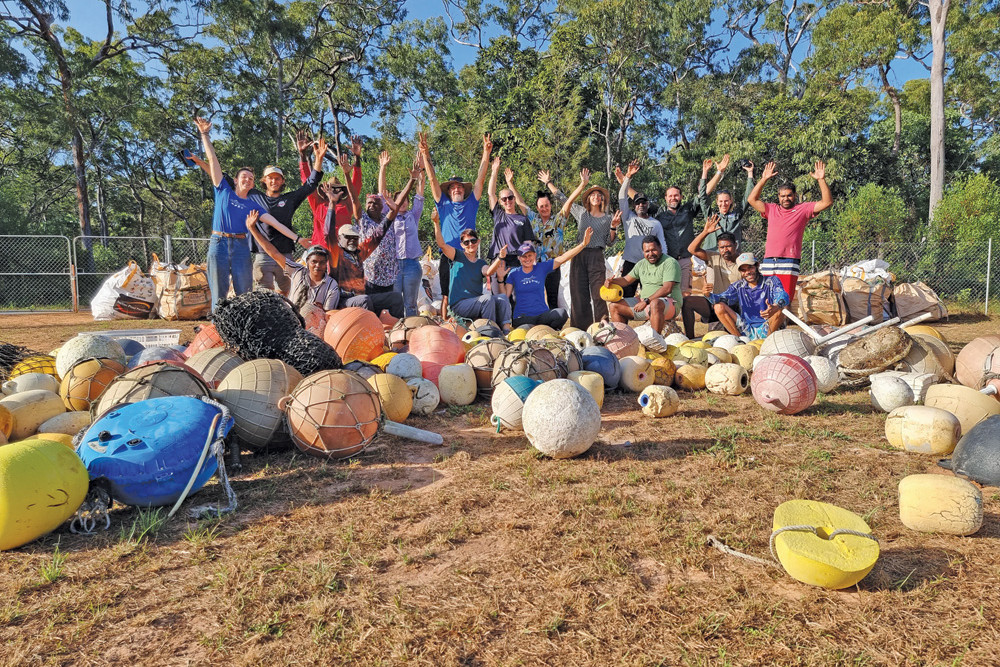Community & Business
25 June, 2023
Remote beach clean-up
A team of 25 people including volunteers, elders and custodians were flown by helicopter to a remote beach on Wuthathi Country where they removed a staggering 10.8 tonnes of marine debris, the biggest amount of rubbish removed from a clean-up in a single event.

A team of 25 people including volunteers, elders and custodians were flown by helicopter to a remote beach on Wuthathi Country where they removed a staggering 10.8 tonnes of marine debris, the biggest amount of rubbish removed from a clean-up in a single event.
Fishing litter dominated the debris including 1.3 tonnes of net and rope, 345 kilograms of commercial fishing beacons and six ghost nets.
The unique clean-up, which targeted almost 3km of coastline along Wuthathi Ngaachi (Country) and Karakara (Sea Country), is one of the hundreds of cleanups marine debris organisation Tangaroa Blue Foundation runs each year.
“Through our helicopter surveys over the past four years we could see marine debris piling up along the Cape York coastline between Cooktown and Horn Island but given the remote location we were unable to get teams on the ground to remove it,” Tangaroa Blue CEO Heidi Tait said.
“Our usual boats and four-wheel drives were no match for this remote location, which has become a debris drain for plastic waste from around the world but with the help of Heartland Helicopters, we were able to reach, remove and record the waste in the Australian Marine Debris Initiative Database.”
Wuthathi IPA Coordinator Sophie Holt said the project was a good example of the great environmental and cultural outcomes that could be achieved when First Nations Corporations and Indigenous Land and Sea programs were better supported and resourced.
The clean-up has helped implement the Wuthathi Healthy Country Plan, where marine debris are listed as a major threat to Marine Totems, Islands, Coastal Ngaachi and Reefs and Seagrass beds.
“In our days, our old people have been living on our country and on our beaches, they camp, and no rubbish was on our beach, but now today it is the modern world and there’s a lot of boats, fishing boats and big ships from overseas - they chuck all that mass of rubbish in the water and it all washes up on our beaches, that’s really sad,” Wuthathi Tribal Elders Council member Moira Macumboy said.


